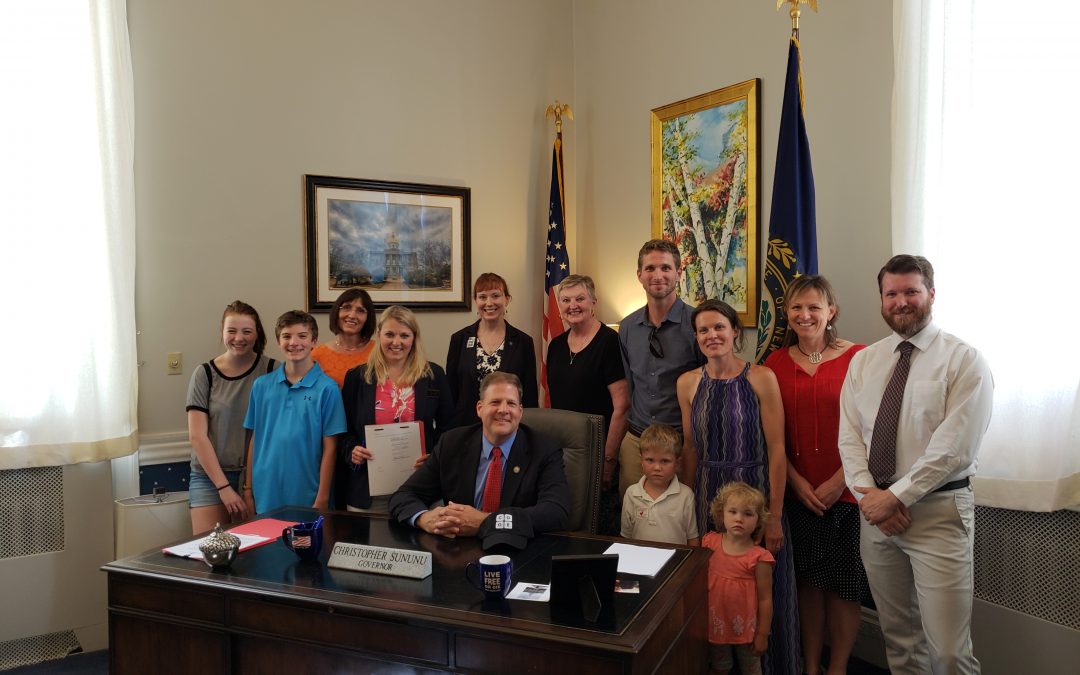With the majority of STEM jobs in computing and a projected job growth of 13% compared with 6.5% growth across all occupations, the need for computer science education has never been greater.
It is this need that in part led Creative Computing Challenge (CCC), a five-year program funded by the National Science Foundation, to establish CS4NH. A working group of business/industry, non-profits, and K-12/higher education members collaborating to bring computer science to all New Hampshire K-12 students, CS4NH is working to increase access to and participation in Computer Science educational opportunities.
CS4NH’s Terry Wolf, a NH state legislative representative and vice chair of the House Education Committee, cited “a huge shift” in the public’s understanding of the need for computer science education.
“Not too long ago, people thought Computer Science only needed to be offered at the high school level as an elective,” she explained. “Today, people want kids to be more than consumers of technology. They want them to be the creators, innovators and problem solvers.”
She said this shift in understanding, furthered by advocacy efforts by CS4NH, led to the passage of NH House Bill 1674 earlier this year, which made Computer Science as a core K-12 subject area.
“After listening to a wide variety of stakeholders, adding Computer Science to the definition of an adequate education matched what people are looking for,” she said. “The bill passed with wide bipartisan support in the legislature.”
CS4NH’s Beth Doiron, Director of College Access and DOE programs and initiatives at the community college system of NH, said skills learned in computer science courses help students build basic problem-solving skills.
“Computer science instruction helps students understand how to accomplish tasks more efficiently and help them be better prepared for college in general, regardless of their career or program major choice,” she said.
CS4NH has forged several strategic partnerships, including one with the New Hampshire Tech Alliance, which Executive Director Matt Cookson said makes sense for them in several ways.
“CS4NH goals align perfectly with the goals of our Workforce Development committee and mission of the organization,” he said. “Being able to house the efforts of CS4NH and support its growth and implementation was a logical step as we look to encourage more young people to learn about Computer Science in New Hampshire.”
Judith Burrows, Director of Student Aid at the New Hampshire Charitable Foundation, another CS4NH collaborator, said her biggest takeaway from computer science is the thought processes such a curriculum seeks to encourage.
“Computational thinking is much more than just programming or IT,” she said. “It is foundational for all businesses. It really is the currency that businesses are looking for regardless of the field.”
Citing computational thinking as “the backbone” of various forms of technology, Lori Langlois, Director, North Country Education Services, said Computer Science addresses current and future needs.
“Given the known workforce shortages in NH in computer programming, web development, and other skilled computing fields, CS4NH has an important role in advocating to increase access and participation in CS to foster these career paths for students,” she said.
Langlois said CS4NH is particularly important in her region.
“For the North Country, computer science holds the potential for developing an
innovation economy,” she said. “In order to attract new or expanding businesses, northern NH schools are focusing on computer science with the intention of making visible, the young, energetic, and talented individuals we are developing for a STEM-skilled employee pipeline.”
To learn more about CS4NH, or any related initiative, visit cs4nh.org.
This is the final story of a multi-part series on CCC and the relevance of computational thinking in the classroom and industry in NH.

